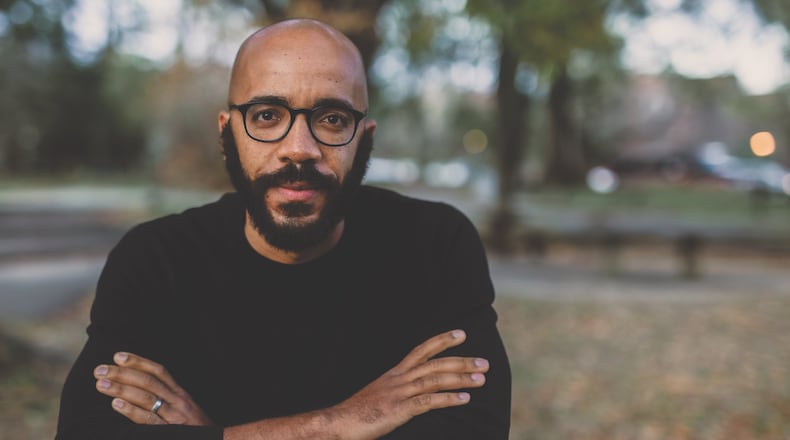Launched in 2006, it is recognized as one of the world’s most prestigious literary honors and is the only international literary peace prize awarded in the United States. Inspired by the Dayton Peace Accords, the Dayton Literary Peace Prize awards a $10,000 cash prize each year to one fiction and one nonfiction author whose work advances peace as a solution to conflict and leads readers to a better understanding of other cultures, peoples, religions, and political points of view.
“With compassion and a sharp-eyed view of history, this year’s finalists provide some much-needed guidance in finding our way to peace,” said Sharon Rab, Chair of the Dayton Literary Peace Prize Foundation, in a release. “The stories featured this year help us take comfort in our shared humanity and assure us that, no matter what, the human spirit, and the hope indomitable within it, prevails.”
The 2022 Dayton Literary Peace Prize fiction finalists are:
Credit: CONTRIBUTED
Credit: CONTRIBUTED
● “Beasts of a Little Land,” by Juhea Kim, HarperCollins. An epic story of love, war, and redemption set against the backdrop of the Korean independence movement, Juhea Kim’s debut novel follows the intertwined fates of a young girl sold to a courtesan school and the penniless son of a hunter. Immersive, elegant, and unforgettable, “Beasts of a Little Land” unveils a world where friends become enemies, enemies become saviors, heroes are persecuted, and beasts take many shapes.
● “Cloud Cuckoo Land,” by Anthony Doerr, Simon & Schuster. From the Pulitzer Prize-winning author of “All the Light We Cannot See,” Cloud Cuckoo Land” is a triumph of imagination and compassion, a soaring story about children on the cusp of adulthood in worlds in peril, who find resilience, hope, and a book. A “wildly inventive, humane and uplifting book for adults that’s infused with the magic of childhood reading experiences” (The New York Times Book Review), this is a story of dreamers and outsiders whose lives are gloriously intertwined.
Credit: CONTRIBUTED
Credit: CONTRIBUTED
● “Infinite Country,” by Patricia Engel, Simon & Schuster. From 2017 Dayton Literary Peace Prize winner Patricia Engel (”The Veins of the Ocean”), a dual citizen of Colombia and daughter of immigrants, a “profound, beautiful novel” (People) that chronicles the “breathtaking story of the unimaginable prices paid for a better life” (Esquire). In the bestselling Infinite Country, the decisions and indecisions that led Mauro, Elena, Karina, Nando,and Talia to occupy two different countries, two different worlds, comes into focus like twists of a kaleidoscope—as do the costs they’ve all been living with ever since.
● “North,” by Brad Kessler, Abrams. From 2007 Dayton Literary Peace Prize winner for “Birds In Fall,” “North” traces the epic journey of Sahro from her home in Somalia to South America, along the migrant route through Central America and Mexico, to New York City, and finally, her last attempt to cross into safety in Canada. It also traces the inner journeys of Father Christopher questioning his monastic way of life, which seems suddenly outdated and privileged, and veteran Teddy Fletcher, who is seeking a way to make peace with his past.
● “The Love Songs of W.E.B Du Bois,” by Honorée Fanonne Jeffers, HarperCollins. The 2020 NAACP Image Award-winning poet makes her fiction debut with this National Book Award-longlisted, magisterial epic. This intimate yet sweeping novel, with all the luminescence and force of “Homegoing; Sing, Unburied,” and “The Water Dancer,” chronicles the journey of one American family from the centuries of the colonial slave trade through the Civil War to our own tumultuous era.
● “What Comes After,” by JoAnne Tompkins, Penguin Random House. After the shocking death of two teenage boys tears apart a community in the Pacific Northwest, a mysterious pregnant girl emerges from the woods and into the lives of those same boys’ families. “What Comes After” offers an unforgettable story of loss and anger, but also of kindness and hope, courage and forgiveness. It is a deeply moving account of strangers and friends not only helping each other forward after tragedy but inspiring a new kind of family.
The 2021 Dayton Literary Peace Prize nonfiction finalists are:
Credit: CONTRIBUTED
Credit: CONTRIBUTED
● “High Conflict,” by Amanda Ripley, Simon & Schuster. When we are baffled by the insanity of the “other side”—in our politics, at work, or at home—it’s because we aren’t seeing how the conflict itself has taken over. That’s what “high conflict” does. It’s the invisible hand of our time. In “High Conflict,” New York Times bestselling author and award-winning journalist Amanda Ripley investigates how good people get captured by high conflict—and how they break free.
● “How the Word is Passed,” by Clint Smith, Little, Brown. This compelling #1 New York Times bestseller examines the legacy of slavery in America—and how both history and memory continue to shape our everyday lives. A deeply researched and transporting exploration of the legacy of slavery and its imprint on centuries of American history, “How the Word Is Passed” is a landmark of reflection and insight that offers a new understanding of how slavery has been central in shaping our nation’s collective history and ourselves.
● “Invisible Child,” by Andrea Elliott, Penguin Random House. Invisible Child, winner of the 2022 Pulitzer Prize, is the unforgettable story of Dasani Coates, a homeless girl whose indomitable spirit is tested by poverty and racism in an unequal America. Elliott traces Dasani’s ancestors from slavery to the Brooklyn shelter where Dasani must guide her siblings through a world riddled by hunger, violence, and drug addiction. Dasani’s acceptance at a boarding school gives her the chance to exit poverty, but at the risk of abandoning her family, as well.
Credit: CONTRIBUTED
Credit: CONTRIBUTED
● “The Last Nomad,” by Shugri Said Sahl, Algonquin Books of Chapel Hill. In this brave, remarkable memoir about an idyllic childhood shattered by war, Shugri Said Salh describes growing up as a nomad in the Somali desert, herding goats along with her grandmother. When the Somali Civil War breaks out, she must flee, first to a refugee camp and eventually to North America. Both a personal and a national history, “The Last Nomad” captures a lost world and is a riveting story of resilience, survival, and the shifting definitions of home.
● “The Sum of Us,” by Heather McGhee, Penguin Random House. McGhee marshals economic and sociological research to paint an irrefutable story of racism’s costs while also sharing the humble stories of people yearning to be part of a better America. With startling empathy, this heartfelt message to all Americans offers a new vision for a future in which we finally realize that life can be more than a zero-sum game.
Credit: CONTRIBUTED
Credit: CONTRIBUTED
● “Wildland,” by Evan Osnos, Macmillan. A dramatic, prescient examination of seismic changes in American politics and culture, “Wildland” is the story of a crucible, a period bounded by two shocks to America’s psyche, two assaults on the country’s sense of itself: the attacks of September 11 in 2001 and the storming of the U.S. Capitol on January 6, 2021. Following the lives of everyday Americans in three cities and across two decades, Evan Osnos reveals how we lost the moral confidence to see ourselves as larger than the sum of our parts.
A winner and runner-up in fiction and nonfiction will be announced on Sept. 27, 2022. Winners receive a $10,000 honorarium and runners-up receive $5,000. Finalists will be by a judging panel of prominent writers, including former Chairman of the National Endowment for the Humanities and Publisher of the “Virginia Quarterly Review,” Jon Parrish Peede; Lisa Page, co-editor of “We Wear The Mask: 15 True Stories of Passing in America”; essayist Garnette Cadogan, editor-at-large of “Nonstop Metropolis: A New York City Atlas”; and Christopher Award winner and author of “A Loss for Words,” Lou Ann Walker.
Wil Haygood, author of multiple nonfiction books chronicling the lives of 20th-century Black Americans, including “The Butler,” was awarded the 2022 Ambassador Richard C. Holbrooke Distinguished Achievement Award, named in honor of the noted U.S. diplomat who helped negotiate the Dayton Peace Accords. Haygood will accept the award at this year’s ceremony, slated Nov. 13.
About the Author






